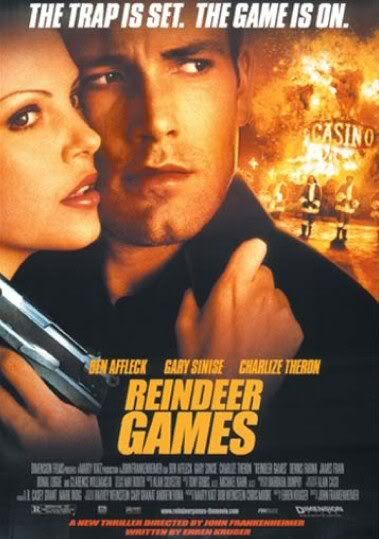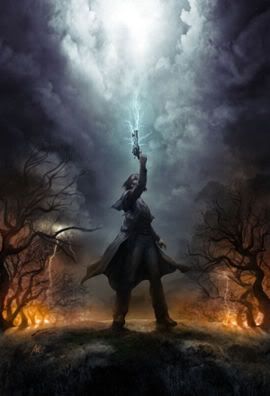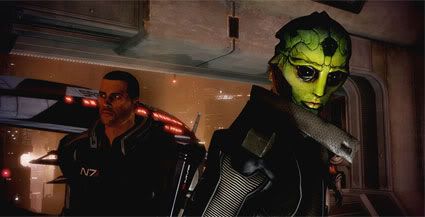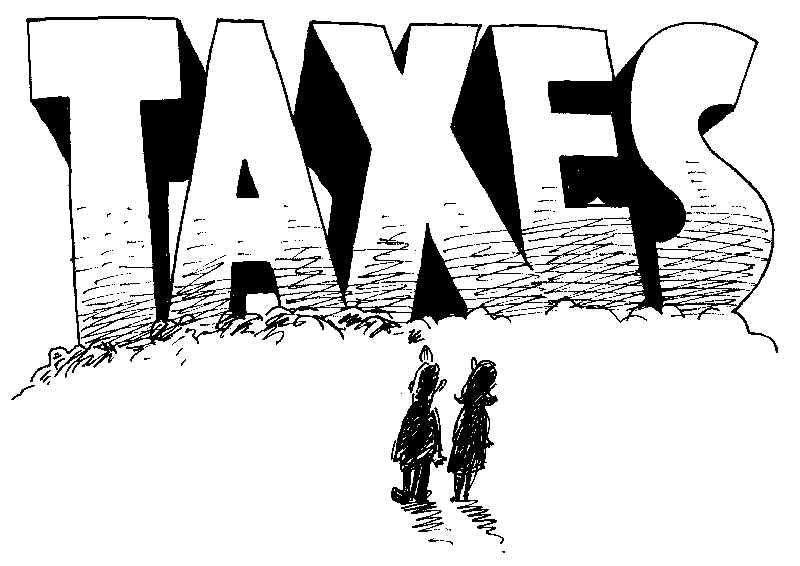
The Razzies are the antithesis of the Oscars, in that they honor the very worst in film-making while Oscar honors the best. Or at least the most lucrative. Anyway, Sandra Bullock classed up the joint by showing up to accept her award. She might do the same on Sunday at the Oscars, for an entirely different movie, but I like any celebrity who’s capable of laughing at themselves. So kudos, Sandra. You’re still aces in my book.
Unsurprisingly, Transformers: Revenge of the Fallen was awarded “Worst Picture of 2009” despite its monumental box office returns, coming in just behind the blue-furry-powered Avatar. As kind as I was to the film in my review, a lot of that came from touches of nostalgia that help me return to the head space of a more innocent boy who hasn’t been exposed to things like collections agencies, unemployment and Uwe Boll. I acknowledge that it isn’t that great a movie, and some parts of it hedge on the terrible, but I still cannot completely chalk it up to bad writing.
In the article from Yahoo, something caught my eye that I felt bore mentioning:
“Transformers: Revenge of the Fallen” was picked as last year’s worst picture and won two other Razzies, worst director for Michael Bay and worst screenplay for Ehren Kruger, Roberto Orci and Alex Kurtzman.
Okay. Bob & Alex, I know. Well, I don’t know them personally, but apparently Bob’s been to this blog before. These guys worked with J.J. Abrams to bring us both Fringe and the new Star Trek film. Yet they were also involved in Revenge of the Fallen.
“How is this possible?” I often asked. “How are two guys who are distinguishing themselves as smart writers involved with something that, if I’m being honest, is a little dumb?” I think I have my answer.
Who is Ehren Kruger, and why did he ruin Transformers?
A little investigation may have yielded my answer. Apparently Mr. Kruger, before becoming involved with Transformers, adapted the Japanese horror Ringu for American audiences – that is to say, he dumbed it down. So he’s got a track record for making things worse than they had to be. But where did he start? What original works as he produced? Drilling down a little further I found my answer: Reindeer Games.

Suddenly, it all made sense. Now, I’ve only seen Reindeer Games once, during my university years, and I think I might have been hung over at the time. I don’t remember if I was more nauseous due to the previous night’s shenanigans or the awful, awful nature of this film. It’s one of those films that sits there and does absolutely nothing new. I wouldn’t watch it again unless someone asked me to. And gave me proper incentive.
Yeah, pretty shameless plug, I know. Click on those ads on the right while you’re at it, ad-clickers.
Anyway.
So the guy who shat out Reindeer Games and watered down Ringu for the fans of Jason & Freddy got involved with Orci & Kurtzman? That’s like having Gordon Ramsay and Morimoto-sama working together on a dish and inviting a hobo to come in and contribute whatever they want. Whatever delicious experimentation the two experts have undertaken is going to be completely overpowered by the rotgut, old anchovies and that shoe the hobo was chewing on before he got picked up. No wonder Revenge of the Fallen was such a mess. It all makes sense now!
Don’t read this as a diatribe against collaboration. Working with other people on a project often yields better results than going it alone. Peter Jackson could have worked alone to adapt The Lord of the Rings, but working with Phillipa Boyens and Fran Walsh made the films into masterpieces. Chuck Wendig wouldn’t have been able to blast his latest script draft in the face without the suggestions & input from people at Sundance. Well, maybe he could have, this is the Magic Talking Beardface we’re talking about.
All I’m saying is it takes one bad cook to spoil the meal. George Lucas insisted on so many things in the Star Wars prequels and had so much momentum behind him that nobody dared to question his decisions. I wonder if Kruger had Michael Bay firmly in his corner and pushed him to make changes to the screenplay after Bob & Alex were done with it. Other explanations make less sense. Bob & Alex, on their own, do good work. I just have to imagine that Kruger & Bay destroyed most if not all of the good they did for Revenge of the Fallen. Or maybe everybody was drunk. I think a couple of the cameramen certainly were.
Anyway, that’s what sprang to mind when I saw that third name on the list for the Razzie those guys won. This is just my opinion, I have no evidence to support it, rant rage etc. Nothing to see here, move along.
I’ll probably talk about the Oscars tomorrow. Not sure if I want to watch them, but I’ll be sure to talk about them. I have better things to do with my time. Like watch my lovely wife play the lovely Assassin’s Creed II. It certainly looks better than the first, which is a game I never finished.
More on that soon, too.












